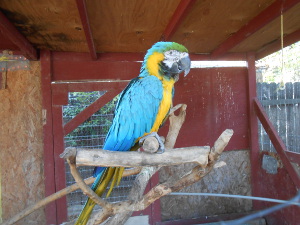 Good old road signs
Ranch-to-Market and County roads, most of which can be found on state maps, and we managed to avoid most of the oil well country, an easier job than it had been last year before the balloon burst.
Good old road signs
Ranch-to-Market and County roads, most of which can be found on state maps, and we managed to avoid most of the oil well country, an easier job than it had been last year before the balloon burst.
By the time we reached the Texas border we were eager to reach our Winter destination, San Antonio. We still found ways to stray from the freeways, relying on Farm-to-Market,
 Good old road signs
Ranch-to-Market and County roads, most of which can be found on state maps, and we managed to avoid most of the oil well country, an easier job than it had been last year before the balloon burst.
Good old road signs
Ranch-to-Market and County roads, most of which can be found on state maps, and we managed to avoid most of the oil well country, an easier job than it had been last year before the balloon burst.
In case you're wondering, the reason we avoid the oil country is that the oil wells are located off the paved highways, on freshly-graded dirt roads that give off a lot of dust and sand; there are big equipment trucks and big trucks carrying water for fracking that rumble along very fast, crowding the highways and making it tough to drive, and we happen to disbelieve the need for the U.S. to stop importing oil -- in our opinion, we should be saving our oil  Beautiful lake
resources for the time in the future when we really, really might need them!
Beautiful lake
resources for the time in the future when we really, really might need them!
We learned on this trip that in Texas we generally have a choice of roads, and that there are many small and smaller towns to keep us busy exploring.
Near Amarillo, Texas, we snapped a photo of nostalgic interest--the great old road signs which have pretty much disappeared from more sophisticated places. On the road from Amarillo to Wichita Falls we passed by a beautiful lake, which reminds us that there are many rivers,
 One-armed dove hunt
creeks, washes, lakes, and ponds here. Back roads often follow the hills and dips made by watercourses, and every one seems to have occasional flood gauges where drivers should be wary.
One-armed dove hunt
creeks, washes, lakes, and ponds here. Back roads often follow the hills and dips made by watercourses, and every one seems to have occasional flood gauges where drivers should be wary.
Of course, the watery areas attract hunters and there are plenty of them. In Olney we found a sign advertising One Arm Dove Hunt, Established 1972. Apparently the town held two avid dove hunters, both named Jack, both missing an arm, who initiated this annual event. We can't say whether it is still active, but it certainly makes the town unique.
 Nativity display
Nativity display
Our biggest states, like Alaska, Texas, and California, cover so much territory that there are enormous changes from one end of the state to the other. In the case of Texas the west is dry, the east very wet; the north has cold winters with bitter arctic winds, the south is subtropical. We were happy to be heading from north to south in October, as the cold winds were starting to blow.
 Museum macaw
Museum macaw
A big surprise for us tourists came at the Whitehead Memorial Museum in Del Rio, Texas. This was one of those idiosyncratic museums made up over the years by loving curators and volunteers, one which gladly accepted all the donations that townspeople might make. Just look at Whitehead Museum to see all they have on display. There are many buildings and exhibits, running the gamut from law enforcement to town businesses to general Texas history, and from one person's elaborate collection of nativity scenes to the ceremonial gate from a now-demolished building, not to mention the beautiful macaw who has learned how to open its cage door when it wants to walk around with visitors.
We continue to find new corners to explore, even when we think we already know a lot about each place we visit.